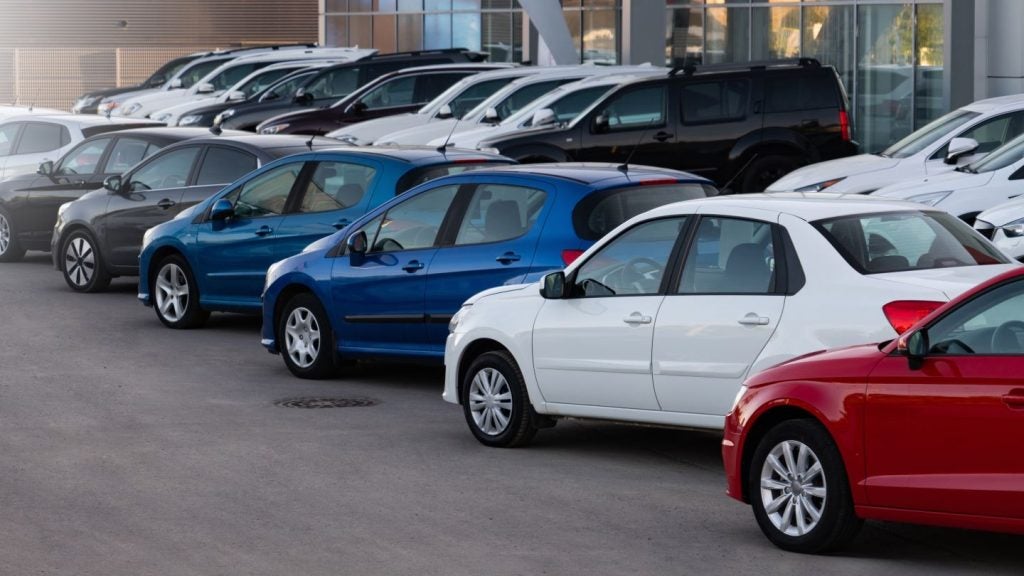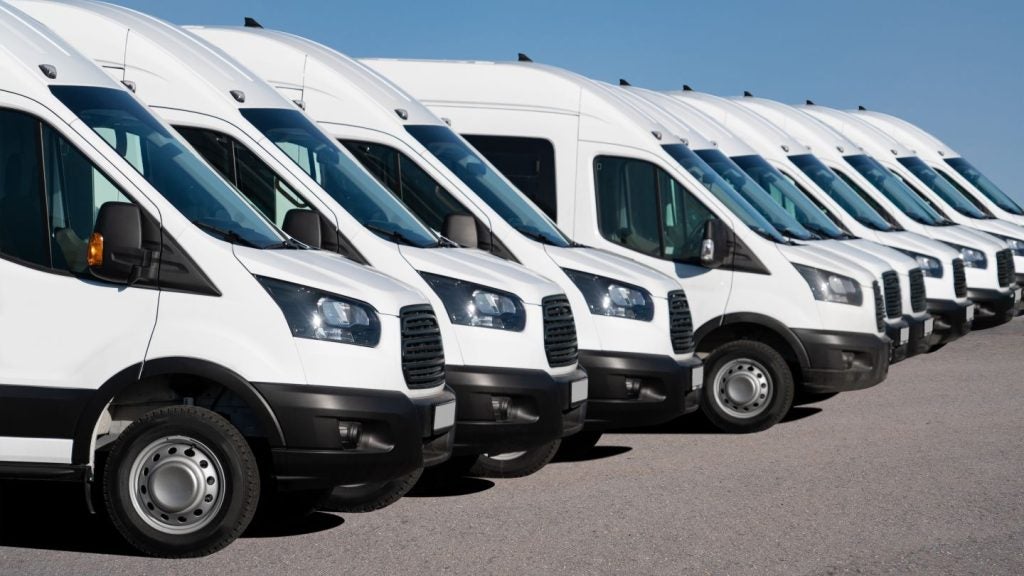
The latest sales data from the Society of the Irish Motor Industry (SIMI) shows new car registrations in August up 32% compared to August 2014 and up 30% for the year-to-date. Some 116,350 new cars were sold in the first eight months of the year.
"This is the third year of the dual registration plate, which has been a real success, allowing the industry to better structure its business year," says SIMI president Mark Boggan. "We now have sales occurring in the second half of the year at rates never seen before, as consumers have embraced the opportunity to purchase their new car in July. The sales figure for July reached 93% of the January sales figure, compared to 82% last year, 67% in 2013 and 21% in 2012 – the last year before the new system was introduced."
In 2013, the year was changed to a three-digit year with the third digit being 1 for January to June and 2 for July to December – for example, 131 for January-June 2013 and 132 for July-December 2013.
According to Colm Furlong, head of asset and invoice finance at Ulster Bank, strong car sales growth continued into September.
"New car registrations for the month of September were up 23% compared to September 2014," Furlong says. "Business investment spending is recovering in line with the economy and this is being reflected in strong growth in the sales of light commercial vehicles in particular, which were up 16% in September 2015 compared to the previous September, and up 49% for the year-to-date."
Figures for the first three weeks of October indicate it was yet another strong month for new car registrations, adds Pat Creed, managing director of Bank of Ireland Finance. "Passenger vehicle sales to 20 October showed an increase of 29.8%, with light commercial vehicles up by 44.3%," says Creed. "The market achieved 96,280 passenger sales in 2014 and it is expected that this will increase to more than 125,000 this year, in addition to 23,000 light commercial vehicle sales. This has resulted in a substantial increase in the levels of finance business that Bank of Ireland Finance is conducting this year. We’ve seen a dramatic shift in the number of customers now availing of personal contract purchase."
Creed acknowledges that conditions in the Irish motor industry have been very challenging since 2007. He says: "The collapse in the economy and weak consumer confidence resulted in consumers postponing their new car purchase. This has resulted in the average age of used cars in the Irish market now being over nine years and there’s pent-up demand to replace these older vehicles."
How well do you really know your competitors?
Access the most comprehensive Company Profiles on the market, powered by GlobalData. Save hours of research. Gain competitive edge.

Thank you!
Your download email will arrive shortly
Not ready to buy yet? Download a free sample
We are confident about the unique quality of our Company Profiles. However, we want you to make the most beneficial decision for your business, so we offer a free sample that you can download by submitting the below form
By GlobalDataAccording to the Department of Finance’s recent SME Credit Demand Survey, 10% of Irish SMEs requested leasing or hire purchase finance in the period from October 2014 to March 2015, which accounts for 22% of all bank finance demand – up from 15% in the same time period last year, adds Furlong.
"The cost of finance has not shifted significantly over the last 12 months," he says. "PCPs continue to be a major feature in the new car sales market and the market has become more competitive. Banks are a first option for many and hold the majority of the market share, but manufacturers are now a very strong force in the market."
In late 2014, Bank of Ireland Finance (together with its franchise partners) launched a new PCP product for pre-owned cars and in doing so became the first Irish bank to offer this product for the purchase of second-hand cars, says Creed.
"We have access to 50% of the motor market through our 14 franchise partner relationships (Toyota, Ford, Lexus, Hyundai, Opel, Kia, Peugeot, Mercedes-Benz, Honda, Volvo, Land Rover, Jaguar, Suzuki and Mitsubishi), which gives us a broad understanding of emerging customer trends. The revolutionary shift in customer behaviour has been the method in which customers fund their new car with more customers opting for PCP and low APR programmes."
He says this has led to increased interest from younger customers: "Research tells us that the younger customer is enticed by a lower monthly payment and very used to the ‘tariff’ concept where we pay for the use of an item and then upgrade". Low APR offers range from terms of 24 to 61 months and can take the form of a lease or a hire purchase agreement.
Creed says the growth momentum for new vehicle sales is expected to continue into 2016. He adds: "With more people returning to employment there will be an increase in the requirement for new vehicles and for motor finance. In terms of challenges, there is currently a level of uncertainty among car buyers regarding CO2 emissions testing following the recent findings concerning Volkswagen and it will be a challenge for the industry as a whole to overcome this in 2016."
RCI Banque Ireland marketing manager Brian McNulty is also optimistic about the health of the motor finance sector in Ireland. Renault Finance specialises in offers for the Renault and Dacia brands and has finance specialists in each of its 26 retailers.
"We started Renault Finance in 2011 in the depths of the recession and there wasn’t much lending at that time," McNulty says. "Since then we’ve seen a huge increase in the market with all the main competitors returning to the market, which has increased competition and ultimately led to better prices for consumers."
McNulty says Renault’s business in Ireland is showing even stronger growth than the overall market and that feedback from customers is that even if their disposable incomes haven’t dramatically increased, there’s less uncertainty about their financial situations so they can budget for the future. Half of all cars purchased in Ireland are financed and approximately 40% of Renault Finance customers take a PCP contract.
He says the most significant development in the market over the last 12 months has been the growth in light commercial vehicle sales. "This is a true sign of economic recovery and other lenders are now starting to look at financing sole traders and SMEs."
Consumers will get a lower rate this year versus last year, albeit not everywhere, McNulty continues. "From our perspective we introduced rates as low as 0% four years ago, so our rates are steady and will remain steady. Consumers are becoming more aware about the total cost of ownership and hence finance is more relevant than ever. Half of our retail contracts this year were at 0%."
He acknowledges that any increase in interest rates would impact borrowing and the risk that the market has not learned from the mistakes of the past.
"The market is more competitive than it has been for seven years, which could result in some lenders becoming too aggressive in terms of approving loans and not looking for sufficient equity. However, there are also opportunities – used cars are demanding a very strong price and it makes a lot of sense for people to consider a new car, especially when they may save cost on serving, maintenance and finance."
BMW Financial Services launched in Ireland in 2004 in partnership with an Irish bank and went it alone in 2010 – right in the middle of the financial crisis, observes managing director Brian Merrigan.
"Over the years since the financial crisis, a lot of negative equity has had to wash through the market but the upturn has seen far more customers in a strong position, having built up equity and saved for a deposit," he says. "This has led to much more structured and robust lending, which works for the benefit of the customer and the retailers."
He adds that with customers now feeling confident in PCP as a product, the challenge and the opportunity is for lenders and manufacturers to build on this confidence and create an even stronger motor finance market. "Brand loyalty is waning, so the key area for differentiation is around customer service. Compliance is, of course, important.
But, even more so, we need to show we are doing right by the customer to keep their business."
Frank Donnellan, managing director of First Auto Finance (which entered the motor finance market in 2011) is also confident that the Irish motor finance market is in recovery mode.
"Our intelligence confirms that during the infamous ‘Celtic Tiger’ years, the forecourt finance market was worth in the region of 3bn (£2.1bn) and from 2008 onwards this was decimated. Players exited the market at a rapid pace and personal credit became almost impossible to source, so much so that dealers became increasingly reluctant to raise the issue of finance with customers in case it actually jeopardised the sale of the car."
Donnellan estimates that the forecourt finance market will hit 1.5bn this year. "Of course the economic situation has affected the market. If you look back to 2000 there were 230,000 new cars registered in Ireland – in 2009 that dropped to 59,000 units nationally. Dealerships failed, thousands of jobs were lost and credit was not available, but the dealerships that survived are now poised to capitalise on the market recovery. Most commentators are predicting 140,000 new car registrations in 2016, which indicates that as the economic situation recovers, and particularly as unemployment continues to drop, massive opportunities exist."
Donnellan believes 2016 will be another record year for the business and says the best finance deal for the Irish customer is available on the dealer’s forecourt. "No longer is the high street bank competitive or even interested in car finance. Dealers are now confidently selling finance and credit is readily available."
In terms of providers, the Irish motor finance market is quite well served by the ‘pillar’ banks, manufacturer options and some independent providers, but while increased car sales have helped the market grow there’s no evidence to suggest these providers are being more sympathetic in credit terms with regard to borrowers, meaning growth is concentrated in the prime borrower segment.
That is the view of Peter McGuinness, chief executive officer of Europe Bluestone Group, who says this development has left a significant segment of the community disenfranchised as a result of not being able to access motor finance, either because they have experienced some challenges through the global financial crisis that are recorded in their credit record, or have insufficient credit history to meet the prime lender’s requirements.
"These are the customers that Bluestone Asset Finance is concentrating on with strong demand emerging from the motor dealer community in particular," McGuinness says. "After the global financial crisis and through the turbulent years that followed, many previously strong borrowers with good repayment records found themselves in difficult scenarios due to emigration, vacant investment properties or changes in employment or income which in turn led to some credit difficulties. Such borrowers – despite turning the corner in terms of recovery – continue to find it difficult to obtain finance."
He adds that PCP/residual products are being pushed strongly by manufacturers looking to gain market share. "In terms of credit, innovation has come from lenders developing solutions for under-served borrowers and a willingness for our credit teams to spend the time understanding the borrower’s past history or lack of a credit history in order to give them access to credit to purchase a vehicle."
On the question of whether the cost of finance has shifted significantly over the last 12 months, McGuinness suggests that while headline rates appear attractive, in many instances restrictive deposit requirements can prevent qualification for such rates.
"The new car market has become more competitive with each manufacturer pushing their finance partners to assist them in gaining market share and finding a competitive advantage," he says. "Our entry into the marketplace with solutions available to a wider base of customers is leading to more options available to customers and motor dealers, predominantly in the used car space."
He believes that as the market grows it is almost inevitable that there will be new entrants into the car finance space. "Recent exchange rates have also reduced the number of cars being imported from the UK, which provides a challenge for dealers to source fresh used car stock due to limited new sales in 2012 and 2013."
In addition to encouraging borrowers who previously had finance applications refused to revisit the motor dealer with a view to changing their vehicles, he says dealers are also signing up as partners with Bluestone as they now have the opportunity to sell/finance the cars that their prime providers are refusing to approve, therefore increasing the total sales market. McGuinness reckons the percentage of customers who are declined prime finance to be in the region of 25% of prime volumes.
NextGear Capital expects vehicle sales to be at the forefront of an improving economy next year, observes managing director David Mercer. "The residual issue of non-performing loans remains, but we expect the supply of credit to improve dramatically in the next 18 months."
He expects sales volumes in 2016 to exceed the 142,000 units sold in 2008 and reach as high as 160,000 vehicles. Supporting a more confident buyer are strong manufacturer offers, as OEMs seek to maximise growing markets as other regions (such as China) slow down.
"A repeat of 50% growth in new van sales is not on the cards, but a further rise of 20% is very possible because the country is still recovering from a low base," Mercer suggests. "Central to this will be a return of confidence in the small and medium-sized enterprise market, notably in the construction industry and in the provision of vans to service the growing online shopping market."
Last year saw an increase in total used sales to over 970,000 units with dealers increasing the number of vehicles imported from Northern Ireland to fulfil demand. NextGear Capital anticipates total used sales volumes to exceed one million by the end of this year, with around 200,000 of these sales being through dealers.<







